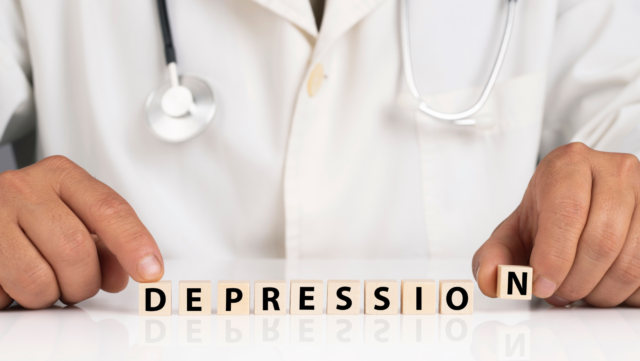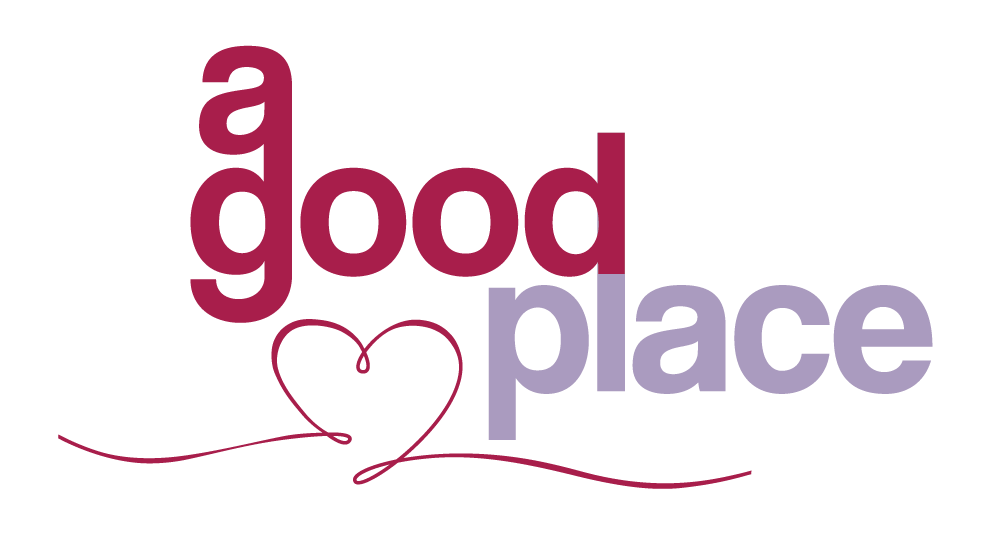Must-Know Tips On How To Manage Depression
By: A Good Place Therapy
Approximately 280 million people in the world have depression.
Depression is a common mental health issue affecting millions of people worldwide.
Coping with depression can be challenging, but with the right strategies and treatments, it is possible to regain control and improve one’s well-being.
In this article, we will explore essential tips for managing depression, highlight different types of depression, delve into popular treatment options, and address common questions surrounding this condition.
Let’s get into it.
Understanding Depression
Depression is not just feeling sad; it is a complex mental health disorder with various symptoms that may vary from person to person.
Common symptoms include persistent sadness, loss of interest, changes in appetite and sleep patterns, feelings of worthlessness, and difficulty concentrating. It is crucial to recognize these signs to seek help promptly.
Common Types Of Depression
Major Depressive Disorder (MDD): Major Depressive Disorder, also known as clinical depression, is one of the most common and severe forms of depression. It is characterized by persistent feelings of sadness, hopelessness, and a lack of interest or pleasure in activities that were once enjoyable. Symptoms of MDD may include changes in appetite and sleep patterns, fatigue, difficulty concentrating, feelings of worthlessness or guilt, and thoughts of suicide. These symptoms must persist for at least two weeks for a diagnosis of MDD.
Persistent Depressive Disorder (PDD): Persistent Depressive Disorder, previously known as dysthymia, is a chronic form of depression that lasts for an extended period, usually two years or more. While the symptoms may not be as severe as in Major Depressive Disorder, they are more persistent and can significantly impact daily life. People with PDD may experience low energy, a lack of motivation, feelings of inadequacy, and difficulty maintaining relationships.
Bipolar Disorder: Bipolar Disorder, formerly called manic depression, is a mood disorder characterized by alternating periods of depression and mania or hypomania. During the depressive phase, individuals experience symptoms similar to those of Major Depressive Disorder. However, during the manic or hypomanic phase, they may feel extremely energetic, euphoric, impulsive, and have a decreased need for sleep. Bipolar Disorder is a complex condition that requires careful management with mood-stabilizing medications and psychotherapy.
Seasonal Affective Disorder (SAD): Seasonal Affective Disorder is a type of depression that follows a seasonal pattern, typically occurring during the fall and winter months when there is less natural sunlight. Individuals with SAD may experience symptoms of depression, such as fatigue, increased sleep, weight gain, and withdrawal from social activities. Light therapy and other treatments aimed at increasing exposure to natural light are often used to manage SAD.
Postpartum Depression (PPD): Postpartum Depression is a specific form of depression that occurs after childbirth. It is not uncommon for new mothers to experience mood swings or “baby blues” shortly after giving birth, but postpartum depression is more severe and long-lasting. Symptoms may include feelings of sadness, anxiety, irritability, changes in appetite and sleep patterns, and difficulty bonding with the newborn. PPD requires prompt attention and support to ensure the well-being of both the mother and the baby.
Psychotic Depression: Psychotic Depression is a severe form of depression that is accompanied by psychotic symptoms, such as hallucinations (seeing or hearing things that aren’t there) or delusions (false beliefs). These symptoms can significantly impact a person’s ability to function and may require immediate medical attention.
Atypical Depression: Atypical Depression is characterized by a unique set of symptoms that differ from classic depression. Individuals with atypical depression may experience mood reactivity, meaning their mood can temporarily improve in response to positive events. They may also have increased appetite, weight gain, excessive sleep, and a feeling of heaviness in the limbs. This form of depression can be challenging to diagnose but is treatable with appropriate interventions.
It is essential to note that depression is a complex and varied mental health condition, and individuals may experience a combination of symptoms from different types of depression.
Seeking professional help is crucial for accurate diagnosis and developing a personalized treatment plan to effectively manage depression.

Tips To Manage Depression Naturally
Managing depression naturally involves adopting various lifestyle changes and self-help strategies that can complement formal treatments.
While it’s essential to seek a professional therapist for severe or persistent depression, the following natural approaches can aid in improving mood and overall well-being:
Regular Exercise: Engaging in regular physical activity, such as walking, jogging, or yoga, releases endorphins, which are natural mood boosters. Exercise can also reduce stress and anxiety, promoting a sense of well-being.
Mindfulness and Meditation: Practicing mindfulness and meditation techniques can help individuals become more aware of their thoughts and emotions. This increased self-awareness allows for better management of negative thought patterns and stress.
Nutrition and a Balanced Diet: Eating a healthy and balanced diet can have a positive impact on mood. Incorporate nutrient-rich foods like fruits, vegetables, whole grains, lean proteins, and omega-3 fatty acids into your meals.
Adequate Sleep: Prioritize getting enough sleep each night as sleep plays a crucial role in maintaining emotional balance. Aim for 7-9 hours of quality sleep.
Limit Stress: Identify sources of stress in your life and work on coping mechanisms to reduce their impact. Stress management techniques such as deep breathing, progressive muscle relaxation, and taking breaks can be beneficial.
Time in Nature: Spending time in nature can have a calming effect on the mind and help reduce symptoms of depression. Take walks in parks, go for hikes, or simply sit in a garden.
Social Support: Maintain meaningful connections with friends, family, or support groups. Talking to supportive individuals can provide emotional relief and a sense of belonging.
Creative Outlets: Engage in creative activities like painting, writing, or playing a musical instrument. These activities can serve as therapeutic outlets for expressing emotions.
Limit Alcohol and Caffeine: Excessive alcohol consumption and high caffeine intake can negatively impact mood and exacerbate depression symptoms. Moderation is key.
Volunteering or Helping Others: Engaging in acts of kindness and helping others can boost self-esteem and provide a sense of purpose.
Sunlight Exposure: Spending time outdoors and getting exposure to natural sunlight can improve mood, especially for those with Seasonal Affective Disorder (SAD).
Practice Gratitude: Cultivate a habit of gratitude by focusing on the positive aspects of life. Keep a gratitude journal to regularly reflect on things you are thankful for.
Limit Social Media: While social media can be a source of connection, it can also contribute to feelings of inadequacy and comparison. Set boundaries and take breaks from social media if needed.
Establish a Routine: Having a daily routine can provide structure and stability, which can be particularly helpful during depressive episodes.
Pets and Animal Therapy: Spending time with pets or engaging in animal-assisted therapy can have a calming and uplifting effect on mood.
Yoga and Tai Chi: Practicing yoga or Tai Chi can help alleviate physical tension and promote relaxation. These mind-body practices also encourage mental focus and can improve mood and flexibility.
Aromatherapy: Certain scents, like lavender and chamomile, have calming effects and can be used in aromatherapy to reduce anxiety and promote relaxation.
Herbal Supplements: Explore herbal remedies like St. John’s Wort, lavender, or chamomile under the guidance of a qualified healthcare professional. Some herbs have shown promise in supporting mood and reducing symptoms of depression.
Acupuncture: Acupuncture, an ancient Chinese healing practice, involves the insertion of thin needles into specific points on the body. It is believed to balance the body’s energy and promote overall well-being, including emotional health.
Art and Music Therapy: Engaging in creative activities, such as painting or playing musical instruments, can be therapeutic and provide an outlet for expressing emotions.
Nature Therapy: Spending time in nature can have a grounding and calming effect. Consider walking in parks, gardening, or even simply sitting outdoors to connect with nature.
Holistic Nutrition: Focus on a balanced diet that includes nutrient-dense foods like fruits, vegetables, whole grains, and lean proteins. Avoid processed and sugary foods that may negatively impact mood.
Herbal Teas: Herbal teas like chamomile, passionflower, or valerian root can promote relaxation and better sleep.
Journaling: Keeping a journal can help you process emotions, identify patterns, and gain insights into your thoughts and feelings.
Breathing Exercises: Practice deep breathing techniques to reduce stress and anxiety. Breathing exercises can be done anytime and anywhere to help calm the mind.
Crystal Healing: Some individuals find comfort and balance through the use of crystals. Different crystals are believed to have unique healing properties that can positively impact emotional well-being.
Laughter Therapy: Surround yourself with humor, watch funny movies, or spend time with people who make you laugh. Laughter triggers the release of endorphins, which are natural mood enhancers.
Guided Imagery: Guided imagery involves creating positive mental images to promote relaxation and reduce stress. It can be used as a form of meditation.
Energy Healing: Explore energy healing practices like Reiki or Qi Gong to rebalance energy and promote a sense of harmony within the body.
Remember, everyone’s journey to managing depression is unique, and what works for one person may not work for another. It’s crucial to be patient and kind to yourself as you explore these natural approaches and seek support from healthcare professionals when needed.
Natural strategies can be effective complements to professional treatments and contribute to a more balanced and fulfilling life.
The Power of Therapy: Cognitive Behavioral Therapy (CBT)
Cognitive Behavioral Therapy (CBT) is a form of psychotherapy that is widely recognized and utilized in the field of mental health.
It is based on the fundamental premise that our thoughts, emotions, and behaviors are interconnected and that by identifying and modifying negative thought patterns and behaviors, we can improve our emotional well-being and overall mental health.
In CBT, individuals work closely with trained therapists who guide them in understanding their thought processes and how these thoughts influence their emotions and actions.
The primary focus is on identifying and challenging cognitive distortions, which are irrational or negative thought patterns that often contribute to emotional distress. By becoming aware of these distortions, individuals can learn to replace them with more balanced and realistic thoughts.
The therapy sessions are structured and goal-oriented, allowing individuals to set specific objectives they want to achieve. Therapists teach practical skills and coping strategies to help clients manage stress, anxiety, depression, and other emotional difficulties effectively.
This empowering aspect of CBT equips individuals with the tools they need to take an active role in their mental health journey.
Another essential element of CBT is behavioral interventions. Clients are encouraged to engage in activities that promote positive emotions and a sense of accomplishment. By actively participating in such activities, individuals can break the cycle of negative emotions and reinforce positive behavioral patterns.
CBT is considered highly effective and has been extensively researched and validated for various mental health conditions, including depression, anxiety disorders, phobias, and obsessive-compulsive disorder (OCD). It is often recommended as a first-line treatment due to its evidence-based approach and practical applicability.
One of the significant advantages of CBT is its focus on the present and future rather than dwelling on past experiences. While acknowledging the role of past events, CBT emphasizes that change and growth are attainable in the present moment by modifying thought patterns and behaviors.
Overall, Cognitive Behavioral Therapy is a valuable and transformative therapeutic approach that empowers individuals to gain better control over their thoughts, emotions, and actions.
By helping individuals develop healthier cognitive and behavioral habits, CBT facilitates lasting positive changes that lead to improved mental well-being and a higher quality of life.
Medication Options For Depression
For severe cases of depression, psychiatric medications may be prescribed to stabilize mood and alleviate symptoms.
Antidepressants, mood stabilizers, and anxiolytics are commonly prescribed medications that should only be taken under a doctor’s supervision.
FAQs
What are the primary risk factors for developing depression?
Depression risk factors include genetics, family history, past traumas, chronic medical conditions, and certain medications.
Is depression a sign of weakness?
No, depression is a medical condition, not a sign of weakness. It affects people from all walks of life, regardless of their strength or resilience.
Can depression be cured completely?
While there is no definitive cure, depression can be effectively managed with appropriate treatment and support.
Are there any natural supplements that help with depression?
Certain supplements like omega-3 fatty acids, vitamin D, and St. John’s Wort have shown potential benefits in managing depression, but they should be used with caution and under medical supervision.
Can alcohol and drugs worsen depression?
Yes, alcohol and drug use can exacerbate depression symptoms and interfere with treatment efficacy.
How can I support a loved one with depression?
Offering empathy, active listening, and encouraging them to seek professional help are essential ways to support someone with depression.
Conclusion
Depression is a significant mental health challenge that requires compassion, understanding, and professional support.
By following the tips mentioned in this article, familiarizing yourself with the various types of depression, and exploring popular treatment options, you can take proactive steps to manage depression effectively.
Remember, seeking help and maintaining an open dialogue with healthcare professionals and loved ones is crucial in the journey to improved mental well-being.
If you have any questions about our article, “Must-Know Tips On How To Manage Depression” or need a remote therapist feel free to contact us on LiveChat, social media or at [email protected].





